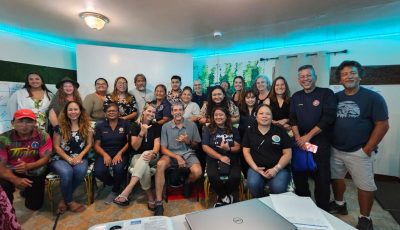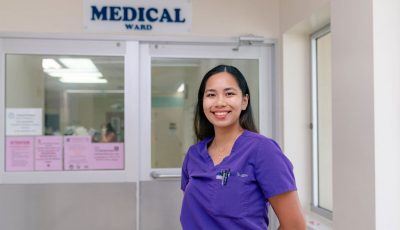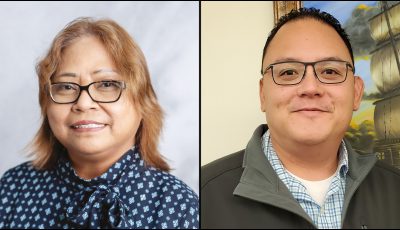‘CHCC is ready to apply green cards for its longtime nurses’
CW is more than just filling a spot
Even before U.S. Citizenship and Immigration Services made a 3,000 cut in the number of slots for foreign workers in fiscal year 2018, the Commonwealth Healthcare Corp. is already in the midst of plans to apply for permanent residency visas for its long-term nurses.
CHCC CEO Esther Muña said the corporation is looking for appropriate visa categories for its nurses and staff, either H-1B or EB-2 visas. She said the Commonwealth Health Center, which CHCC operates, already has a nurse that CHCC had applied for an EB-2 visa. Many of CHC’s nurses are Filipino nationals.
“Because the process of changing status is a complicated process, the [CNMI-Only Transitional Worker program] is a way for them to work for us while they are waiting for their new status. Because one cannot be out of status when they are here,” she said.
“If you don’t have a status, that’s a problem. Then they would have to leave. What has happened was the CW has been a savior and helped tide us over for a lot of our staff converting to H1B or EB-2 because of that CW availability. That’s another reason why CW should be kept,” she added.
Muña said it is taking time for USCIS to process green cards for their staff and it doesn’t come as fast as they expected it to be.
“It has been over a year and there is progress but the outcome is not there yet. I don’t think we have time to transfer or change the status of our nurses. If the [program] ends in 2019 and we don’t have the nurses converted to changed status then we are going to be [in trouble],” she said.
While waiting for the EB-2 visa process to be done, CHC nurses would need to exit the CNMI because they will be staying illegally.
“We realize that the process takes time and the benefit the CW status allows is they can stay legally on island while they are changing their status,” she added.
Muña said it’s always unfortunate when a professional health worker is sent home while waiting for USCIS to approve his or her new status.
“We need that individual to work here in the hospital and the CW program allows them to stay legally. When they are sent home, it makes the process unproductive. We spend for overtime and, since you are covering for that employee that left, there is strain to the employees that would have to work more hours to cover for that employee,” she said.
“The reality is, CW is more than just filling a spot. It is an important factor during the conversion and the hospital needs that spot,” Muña added.
She said the community needs to accept that CW-1 visa holders can be entitled to a green card.
“The CNMI needs to be open-minded to the idea that the nurses are likely going to get a green card. I’ve heard people hire a local but we are talking about health professionals that underwent training and education and continuously do so,” she said.
“As much as we want to hire locals, many improvements have to be made in our education system. This is something that I want to work with [Northern Marianas College president Carmen Fernandez] in the next year. We need to improve our college and we need to be able to open other fields because there are other fields aside from nursing too.”
Muña cannot over-emphasize the need to have the CW-1 program.
“We need CWs because we want to make sure your staff is of legal status while changing status. CW is an opportunity where they can fall into a legal category that is essential because we need our workforce to be physically here so that we are able to manage our schedule and provide the service that the community needs,” she added.



























